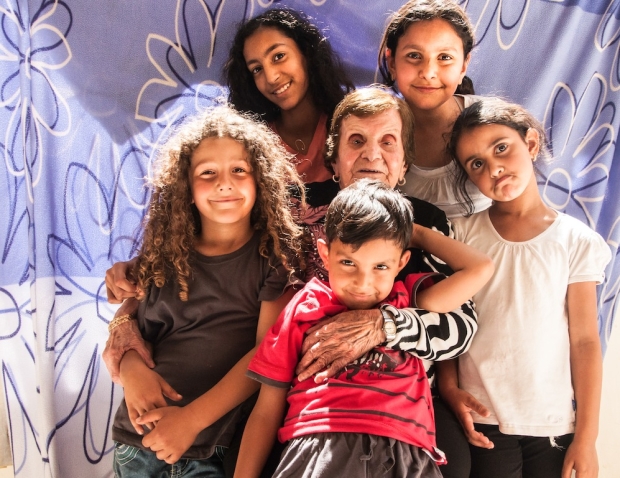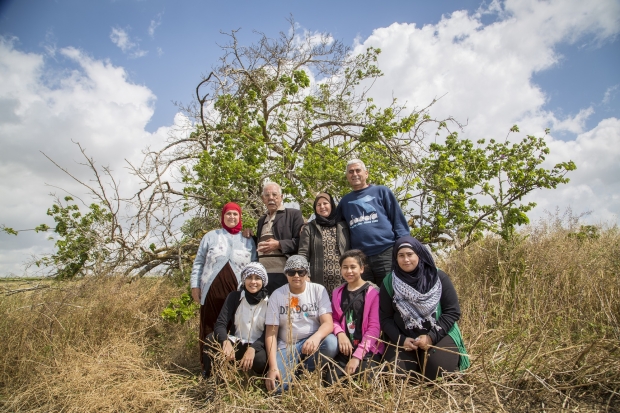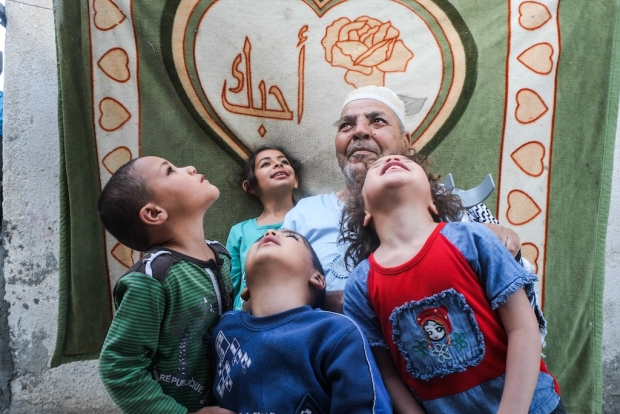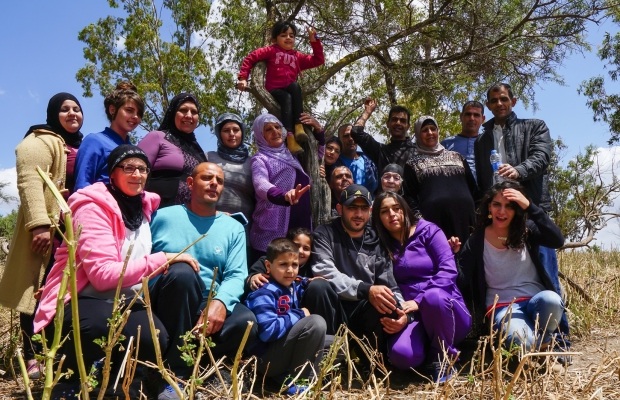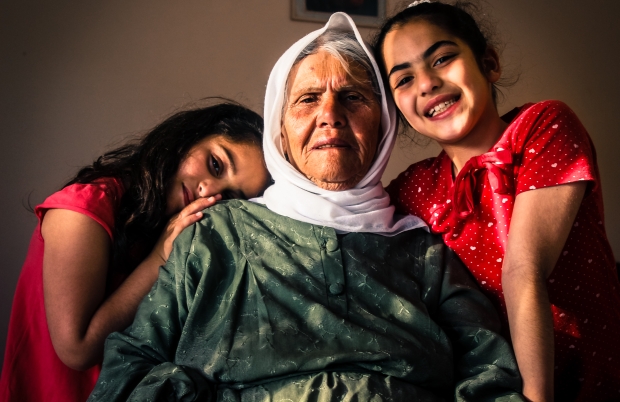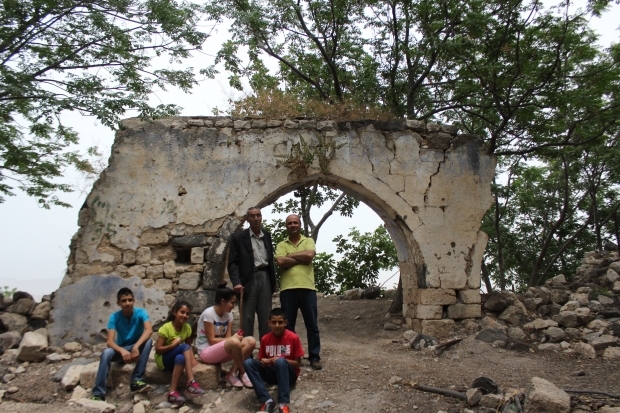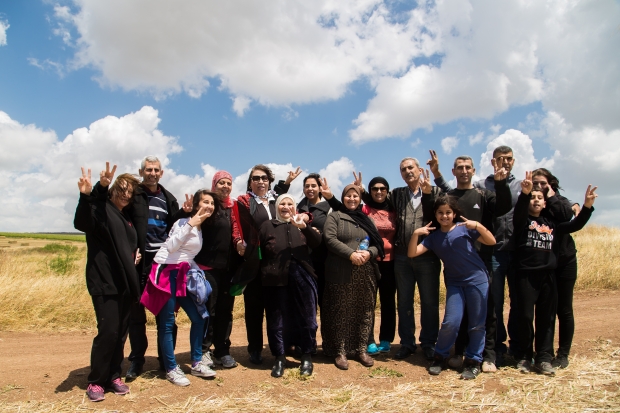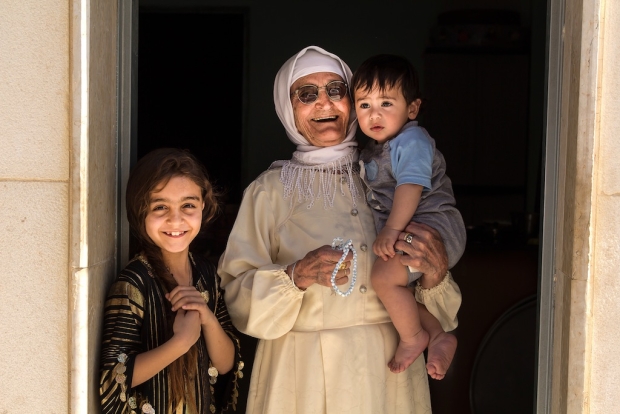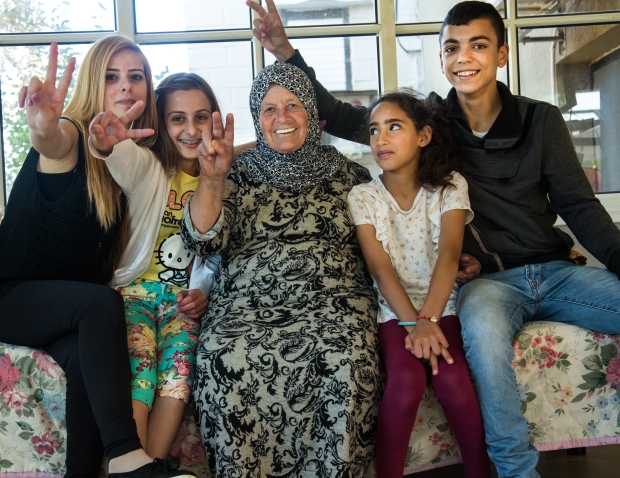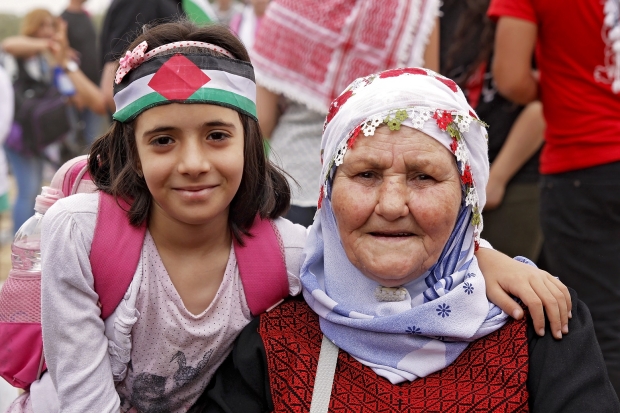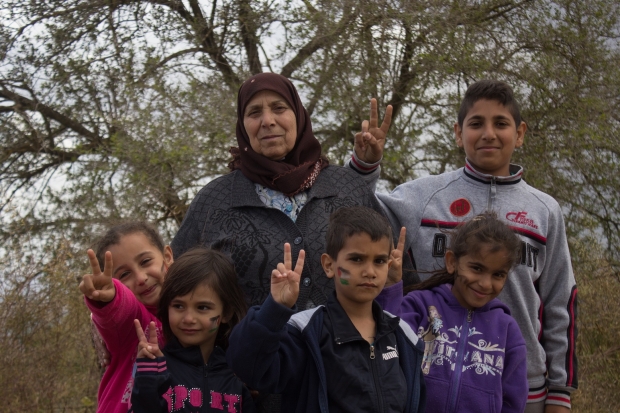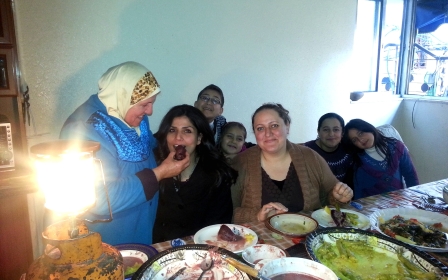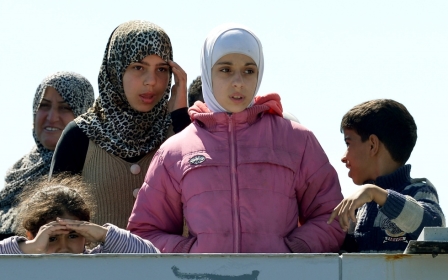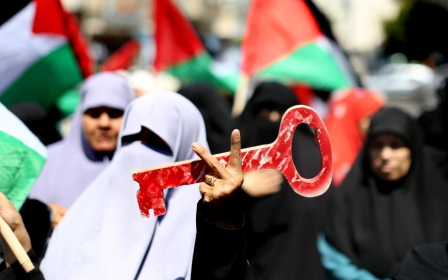IN PICTURES: Faces of Nakba Day
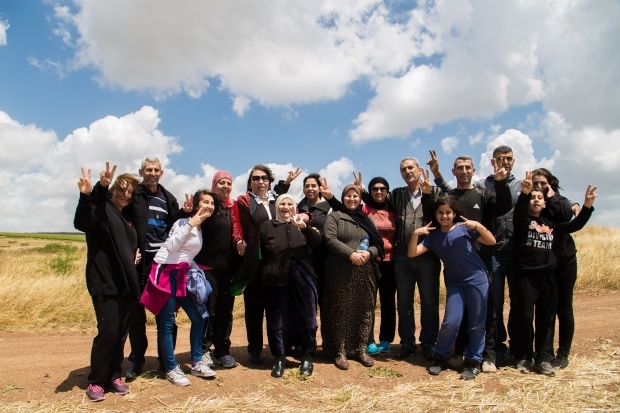
The photographs are from a project titled “Mkamleen,” an initiative from the National Committee for the Defence of the Rights of the Internally Displaced in Israel. The project’s goal is to document the first generation that experienced the Nakba, and juxtapose them with their grandchildren. The project is supervised by Mohammed Badarne.
We were displaced from Majdal-Asqalan. For years we couldn’t go back to see our house because of the fear they planted in us. I can’t describe my emotions when I found out my grandchildren visited the town and found our house. They [Israel] forbade us from returning to our homes but they can’t prevent us bestowing the right of return to our children.
Our land was confiscated and we still have the deeds. They keep asking us to sell the land, or that if we give up our papers they will give us another piece of land. If they gave me all the treasures in this world I still would not hand over my deeds to them. They are not just ownership documents… the deeds are a right that will not be lost.
Every time I smell the sea breeze I remember Qisarya. They [Israelis] transformed the mosque there into a restaurant. We can only implant the dream of returning to our lands in our children.
When I visit my village it makes the Israelis so angry. This is one thing that makes me believe that one day they will pack their bags and leave, because they know that these empty and demolished houses will never forget their true owners.
Al-Lajun is a land of good things and happiness… our village al-Lajun is paradise. Every night I remember our house that was next to the mosque, and I remember the singer that used to come every Thursday. I’ll never forget her voice.
We are from Hittin. Who doesn’t know about Hittin? (Famously the site of a battle where Saladin was victorious). When the village sheikh used to recite the words of the Quran “Gardens with rivers running beneath them” I would always think of Hittin. One day soon we will return to our land, the land that all of the world’s armies tried to conquer and yet where we still remain.
Our father was born on the land we are standing on and he died, forbidden from returning to it. Here we are on the land, his children and grandchildren, as a vow to him that we will never forget where we are from.
I am from the village of al-Sajarah, the village of (assassinated cartoonist) Naji al-Ali and (the singer) Abu al-Arab. I was 10 when I left the village and I remember all the details and everything about it. How can I forget? Who forgets their origins?
Every time I pass near my village I feel its breeze and hear the voices of its people. How can I forget my village when it holds the grave of the sheikh of resistance fighters, that of Izz al-Deen al-Qassam? I will continue talking about my village day and night to my childrens' childrens' children.
Israel managed to take everything: the village and its trees and houses. But Israel could not take away one thing, and that is the sparkle in our eyes whenever we talk about our village and remember it. This sparkle is the hope that will not break us.
We are not the only ones who lost everything. Everyone lost, and everyone has a different story to tell and suffered different misfortunes. But there is one thing we agree on, and that is that our return is a right and we will not give it up.
New MEE newsletter: Jerusalem Dispatch
Sign up to get the latest insights and analysis on Israel-Palestine, alongside Turkey Unpacked and other MEE newsletters
Middle East Eye delivers independent and unrivalled coverage and analysis of the Middle East, North Africa and beyond. To learn more about republishing this content and the associated fees, please fill out this form. More about MEE can be found here.


